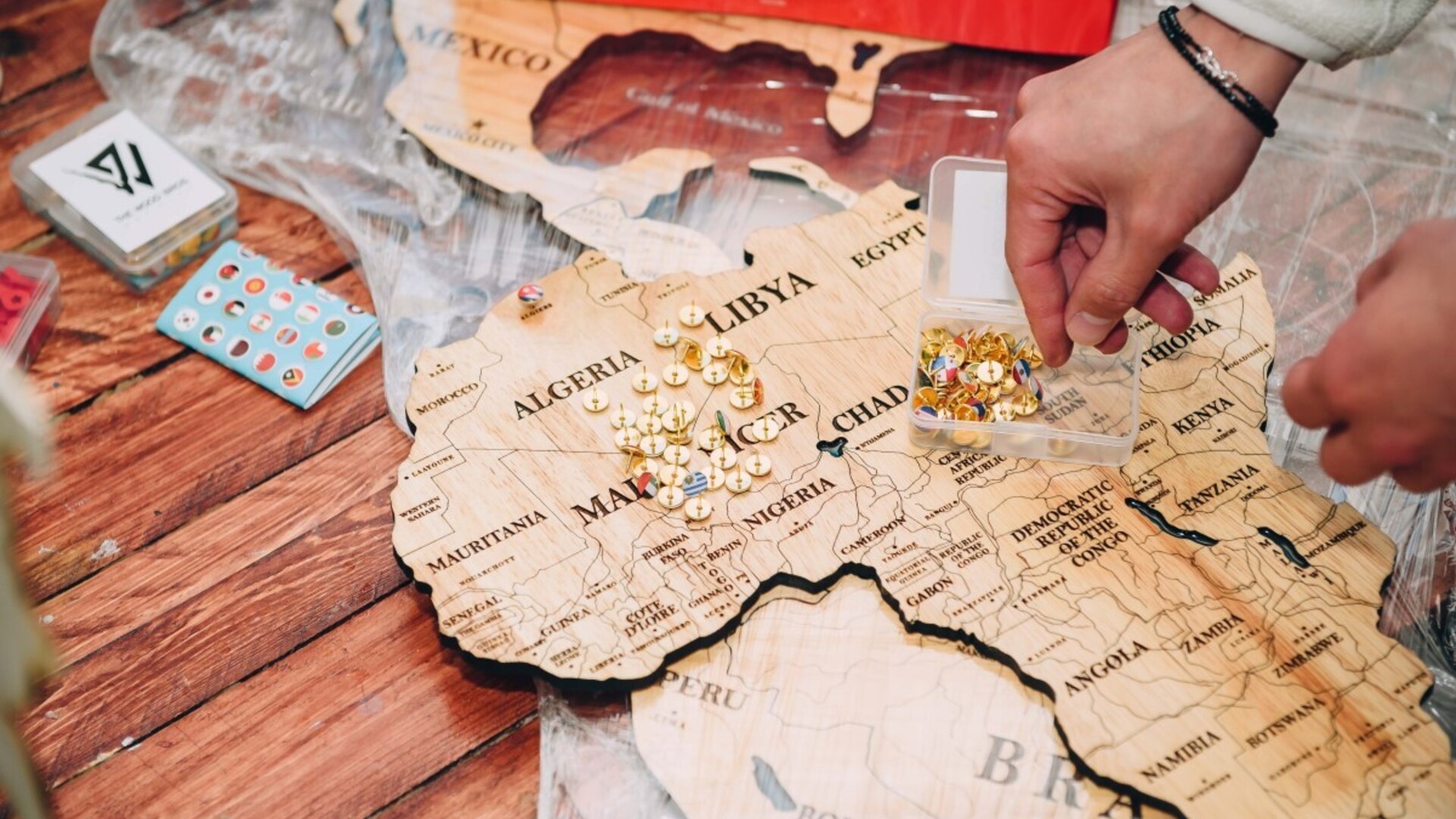
Investing Worldwide, Making Local Impact: Financial Institutions
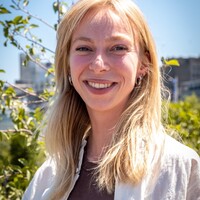
Written by Ceciel Berden on 31 January 2024
Welcome to the place where alternative finance is changing lives. At Lendahand, we offer a platform where you can empower entrepreneurs through microfinance. This approach is opening doors for small businesses in emerging markets, providing them with the accessible credit they need to grow and succeed. Join us as we explore how lending a hand is making a big impact, one loan at a time.
In 2006, pioneer Muhammad Yunus was awarded the Nobel Peace Prize for providing capital to entrepreneurs who are often starved of finance. He demonstrated that impoverished entrepreneurs could start a business and work toward financial independence with the necessary means, a concept now known as microfinance.
After working for several years as a banker, Peter Heijen, one of the founders of Lendahand, decided to leave his job and travel the world. During his time in Asia, he encountered people who made him think about how the reduction of poverty could be achieved in different parts of the world by supporting local economies. Furthermore, he saw that entrepreneurs in developing countries have limited access to banks or institutions, making it challenging for them to borrow money. To build a bridge between these entrepreneurs far away and impact-minded people in Europe, he got a team together with whom he built up Lendahand.
Providing Financing Through Crowdfunding
Through our crowdlending platform, Lendahand wants to channel funding to small and medium entrepreneurs in emerging countries, providing them with accessible credit to grow their businesses.
We achieve this through two types of Financial Institutions (FIs):
1) Microfinance Institutions (MFIs), which are committed to assisting typically poor households and small entrepreneurs and;
2) Digital Lending Platforms (DLPs), which enable medium-sized enterprises in emerging markets to grow and create local jobs.
Both are robust organizations focused on supporting entrepreneurs who cannot access the traditional financial system. They help entrepreneurs avoid the risks of the informal economy and loan sharks - local lenders who charge exorbitant interest rates - by offering regulated microcredit with terms adapted to their personal situations. These microloans are noteworthy as they do not require collateral, but the interest rates are often high.
In this article, Lendahand’s CEO, Koen The, explains why there’s a difference between European interest rates and developing countries.
Balancing Entrepreneurial Growth and Investor Safety
Working with Financial Institutions also reduces the risks for investors. How? Well, Financial Institutions spread the investment over several entrepreneurs, which automatically diversifies the risk. Additionally, Financial Institutions maintain their financial buffer, so when one entrepreneur encounters difficulty repaying the loan, the institution can cover that.
Thanks to the local presence and personal contact, these institutions can more easily understand the needs of entrepreneurs. This approach matches well with the main goal of microfinance, which is to include more people in the financial system. By focusing on the unique challenges small businesses face, these institutions help them grow and support the wider economy and prosperity.
Financial Institutions You Support Through Lendahand
Entrepreneurship represents the fundamental basis of the microfinance approach to poverty alleviation. That's where it matches so well with Lendahand's mission. All financial institutions that you support through our crowdfunding platform meet our stringent criteria for both financial performance and social impact.
Moreover, investments through Lendahand focus on supporting women entrepreneurs and women-led businesses in developing countries, fostering financial stability, and contributing to achieving Sustainable Development Goal #5 for Gender Equality.
Did you know we have even received a grant from development organisation USAID to help us reach more female entrepreneurs?
With your investments, you are reaching local entrepreneurs far away from Europe. We will take you through the different continents in this overview of the financial institutions that are currently available to you:
Asia
In the South Asian region, particularly in Indonesia, Funding Societies provides short-term credit to SMEs through their digital lending platform. They specifically empower SMEs with working capital loans, benefitting 24% of women entrepreneurs. We had a chat with COO Vikas Jain about the entrepreneur’s biggest challenges and how Funding Societies manages to serve SMEs that would otherwise be left without growth opportunities. Check out the video interview here.
Raising financing for entrepreneurs in Indonesia via Lendahand too, is Validus.
Through its digital lending platform, the company has successfully funded over $1 billion to SMEs across Singapore, Indonesia, and Vietnam so far. The financial institution focuses on supporting local distributors of medicines and health products to pharmacies and wholesalers in East Java. Their activities have contributed to financial inclusion in Southeast Asia, helping SMEs increase the number of jobs by an average of 12%.
Further into the Southeast Asian region, we find the island of East Timor, one of the poorest countries in the world, with a GDP per capita of USD 400. In this area, KIF is an essential microfinance institution that works hard on improving the living conditions of impoverished rural and urban populations. As KIF aims to improve the quality of life for families and empower women, 70% of all their loans are directed towards female entrepreneurs.
Aurelia is one of these women supported by KIF. She was able to buy equipment and pineapple shrubs that kickstarted her farm so that both she and her family could benefit from that.
.png)
Central Asia
Central Asia is a subregion of Asia constituted by several countries such as Kazakhstan, Kyrgyzstan,Tajikistan, Turkmenistan and Uzbekistan. After gaining independence from the USSR in 1991, these republics experienced different reforms, aiming at moving them from a state-controlled economy to a market economy. The biggest challenge in the region is the majority of the population is unevenly distributed between cultivated lands and industrialized urban areas. For example, in Tajikistan, 70% of the total population lives in rural areas.
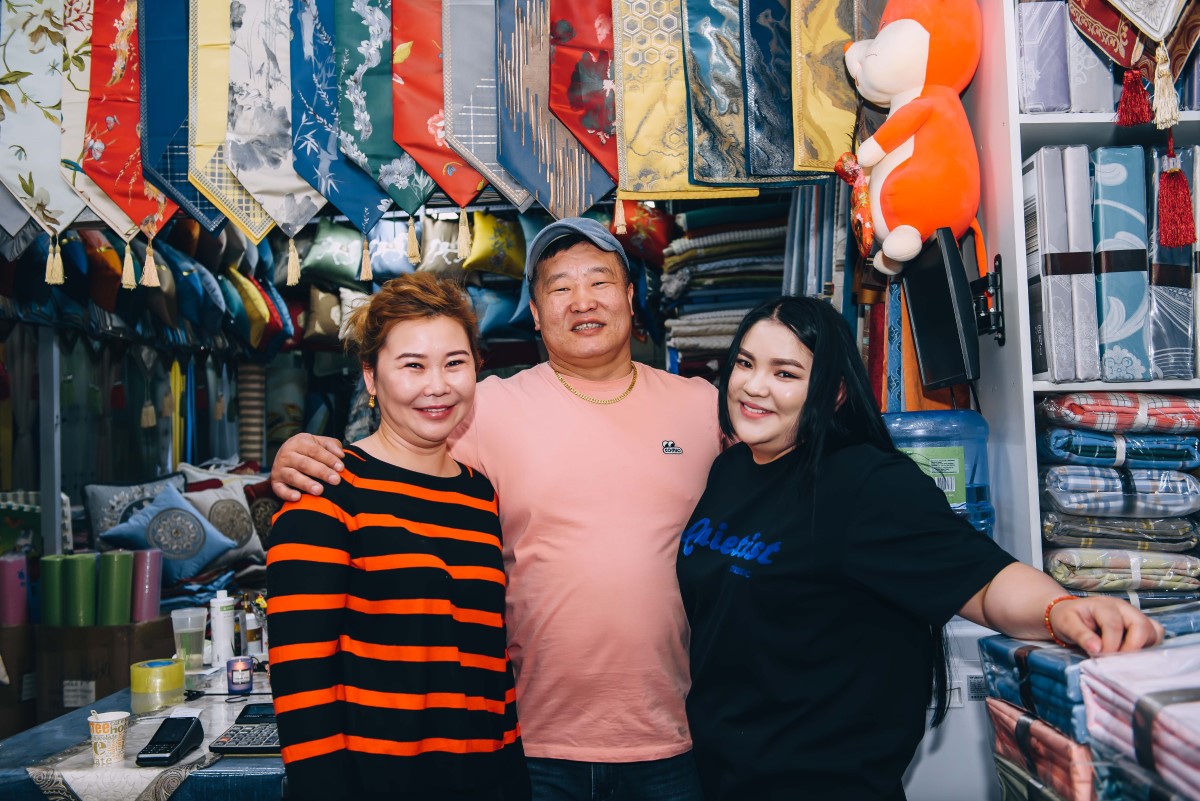
Uzbekistan
As an MFI, Vodiy aims to bridge the limited access to traditional banks by providing small loans to micro, small, and medium-sized enterprises (MSMEs). This support allows carpenters like Numanov to buy the necessary wood and tools to finish their customers’ doors and window frames on time.
Tajikistan
In Tajikistan, OXUS, HUMO, and Furuz are three active microfinance institutions. All three of them offer loans to cater the diverse needs of the local community. OXUS addresses over 60% of its loans to clients in rural areas, with over 30% being female clients. Meanwhile, HUMO takes its responsibility as the country’s second-largest MFI to reach low-income entrepreneurs with small business loans. Furuz's mission is to contribute to the sustainable development of Tajikistan and primarily focuses on sustainable development and financial inclusion. It is their solution to empower entrepreneurs to strive towards a brighter future for themselves and their families.
Mongolia
During a due diligence trip to Mongolia, our team had the opportunity to meet several entrepreneurs. They visited both InvesCore and GSB Capital, two financial institutions that work daily to create social and economic change in Mongolia.
One of the entrepreneurs they met was Davaarjargal. She produces and sells natural soaps and bath salt, hosts soap-making workshops, and runs a shop. Thanks to her InvesCore loan, she can continue to extend her economic activities and source her materials locally from nomads.
Now that InvesCore managed to automate the traditional loan process, they decreased manual work by 80%. This allows the company to process loan applications faster, making them more accessible for all entrepreneurs.
.jpg)
Africa
The majority of microfinancing operations occur in developing countries, many of them being on the African continent. Currently, all three African MFIs in the Lendahand portfolio are based in Kenya. We’re excited to introduce you to their impactful work on the ground.
Firstly, there is Fortune Credit Limited, which offers support to the rural population in Kenya. This support is important for farmers like Mary, who need financing to buy quality seeds and fertilizer for their land. Thanks to a better harvest, Mary’s farm is flourishing and growing. With the extra income, she manages to save for house renovations and hire employees. Besides offering loans and saving programs, Fortune Credit also has an important Clean Cooking Program in which they offer rural families the opportunity to finance biogas stoves. This initiative contributes to better health and helps in reducing reliance on firewood.
The other two financial institutions in Kenya, U&I Microfinance Bank and Kenya Women Microfinance Bank, also primarily support female entrepreneurs to achieve financial independence. The empowerment of women in Africa is a huge step towards social and economic development, something our correspondent Charity shines a light on in this article.
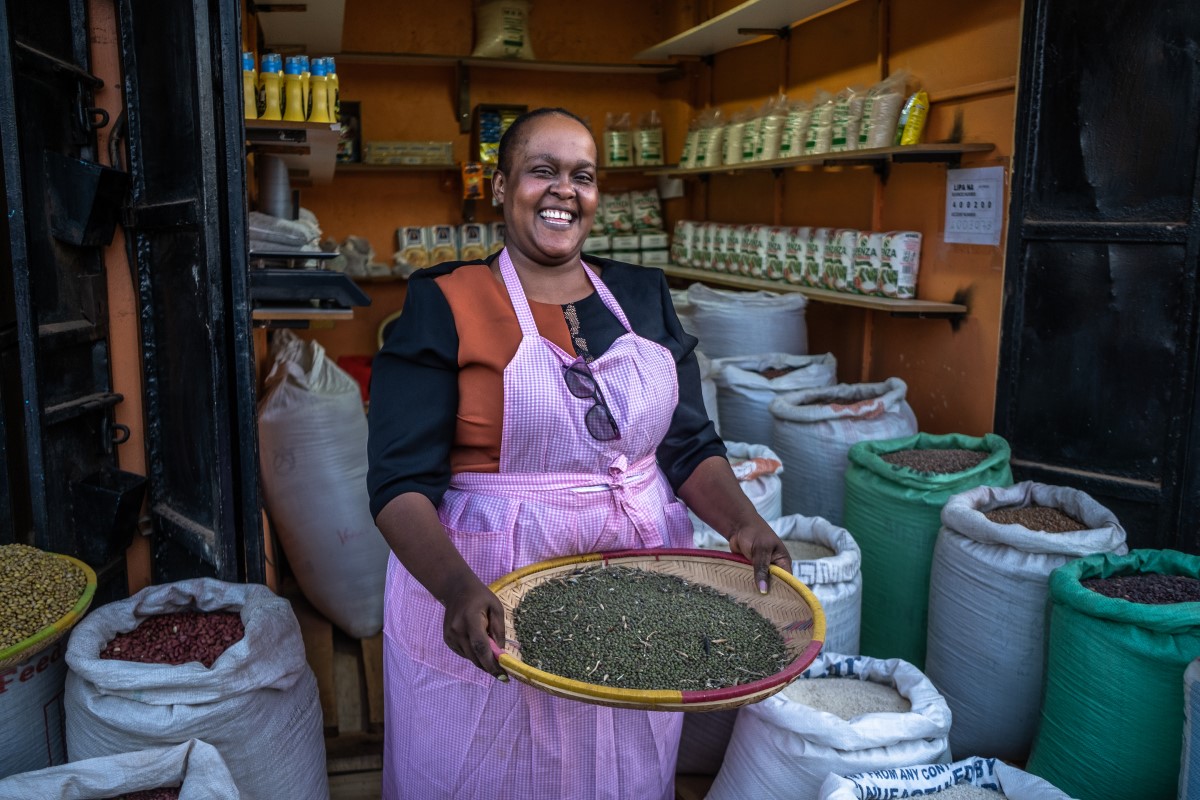
South America
The financial institutions you support through Lendahand in South America also mainly are focused on female empowerment. Cooperativa KORI is for many Peruvian women in Lima and Arequipa the outcome to receive an affordable loan. These women often work in the informal economy, selling home-made goods and food in the streets or from their homes. Organizations such as KORI allow these women to access financing through group loans. The advantage of group loans is that the women also find support and motivation to stay focused on their economic situation with each other. In Mexico, you will find Sofipa impacting the lives of many female entrepreneurs.
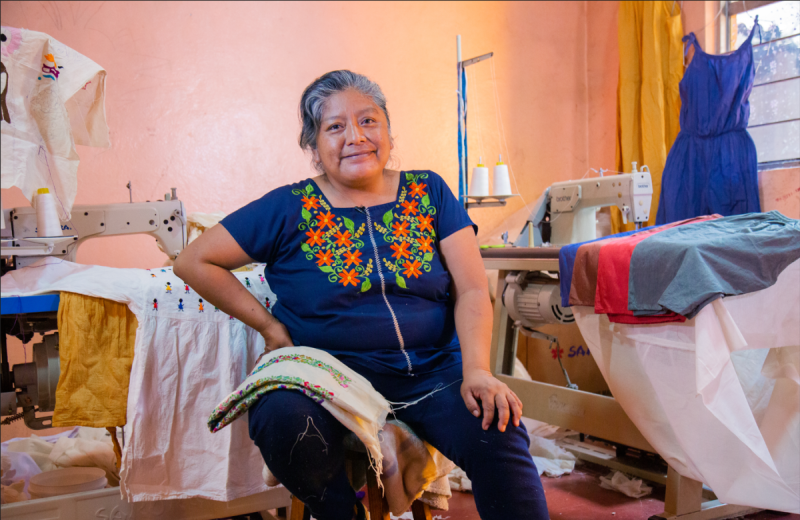
In Nicaragua, we have MiCrédito, who goes the extra mile to make sure nobody gets left behind by visiting rural dwellers by motorcycle. FACES is an NGO based in Loja, Ecuador, that also specializes in the support of women. Oftentimes, women like María already can expand their businesses and increase their family income with a small loan of only 1,000 euros. It allows them to take a huge step towards financial stability for their families.
By investing in Financial Institutions through the Lendahand platform, you can support entrepreneurs who have the skills, ideas, and will to start businesses. You could say, ‘Help them to help themselves’. Head to our projects page to see if there’s a project of interest to you.
You can also subscribe to our newsletter and project update emails to get notified when exciting investment opportunities are available. Sign-up today or go to Preferences in your My Lendahand dashboard.
